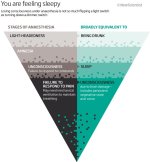ruby sparks
Contributor
Second, I am unclear quite what the formulation ‘consciousness is awareness’ tells us. Perhaps I’m missing something, but it seems to me that two words are synonyms that play precisely the same role. As such, how is this formulation different from saying consciousness is consciousness? Or to put it another way, what do we learn from using this definition?
My answer would be....
I can see where you're coming from, but remember, it is (at least for me it is) just a core definition and is trying to cover all potential bases. Including trees, mountains, solar systems, Chinese Brains and non-physical minds.
Also, I think a synonym is more than a tautology. We can go on to say what we mean by awareness (or perception, or unadorned sentience, since I'm happy with all of them, but prefer awareness). If, for example, we were to add any more words, we'd be having the same problem more times.
So, for example, even extending it to 'what it feels like something to be' could get us into asking what we mean by 'feel' or 'be'. That said, I am pretty fine with that one too. But asking what 'feel' means is no better than having to ask what 'awareness' means. And having to explain what 'feel' and 'be' means is doubling the work. 'Even 'feels like' could arguably be more complicated than just 'feels'.
I'm imagining that I'm starting a book on consciousness. I don't want to rule out anything, if possible, at the outset.
Call me a pedant if you like, but I am following in the footsteps of Descartes in seeking a firm foundation.

